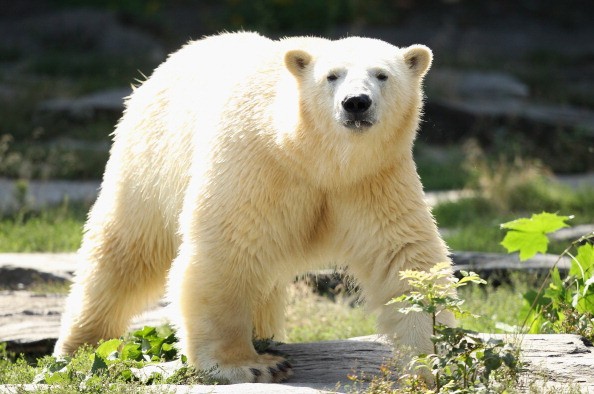As sea ice melts earlier in the year due to climate change, polar bears have begun their hunt for food on land, like bird eggs. They are not too good at it, a recent drone-based study shows. That could be another bad sign for the ability of bears to survive in a changing world, researchers say.

Behavior of Animals
Robert Rockwell, an ecologist at the American Museum of Natural History who has learned about polar bears for 50 years said: "This is a really elegant study." the team's drones use an "excellent" way to notice the behavior of animals.
To make the find, University of Windsor biologist Patrick Jagielski and colleagues paid a visit to Mitivik Island. Sited in Canada's Hudson Bay, this spit of land-just a bit larger than the Grand Central Station in New York City, hosts about 8000 sea ducks, or eiders, each summer. (The name of the island means "the duck place" in Inuit.)
Also Read : Pollution Giving Polar Bears Brain Damage
Favorite Place for Polar Bears
The island has also turned into a favorite place for polar bears. For the past 10 years, the animals, which generally hunt seals and other aquatic animals on sea ice - have been paying visits to Mitivik and the seabirds nest at the same time, during early summer and spring. Jagielski said: "Some halt onto the island to snack on eggs." "Polar bears are just like teenagers, they get hungry always" Rockwell added.
Jagielski and his colleagues from behind the security of an electric fence, launched many drones over the island in July 2017, just before the eider eggs were believed to hatch. After 11 days, they had in possession more than 16 hours of footage from around 20 polar bears.
The Picky Bears
Initially, the bears were very picky about the eggs they ate. They may have been preventing the ones surrounded by feces, an approach many eiders use to drive predators away. But the bears eventually controlled their distaste and destroyed the nests, causing almost the total depletion of the colony.
The team reported in Royal Society Open Science that the bear were still not good hunters. The footage of the drone shows that, as the season continued and fewer eggs were not touched by the bears, the animals frequently wandered fruitlessly from empty nest to empty nest - proposing they were misusing precious energy due to the fact that they couldn't tell from a distance whether eggs were in the nest.

Ultimate Impact on the Bears and Birds
Jagielski said that the ultimate effect on the bears and the birds are still uncertain. On the larger regions of land, the bears may be spending even more critical energy with their unskillful egg hunts.
Rockwell opposes that his own work in the Hudson Bay Lowlands, which is a wetland 800 kilometers south of Mitivik Island, has revealed polar bears there appear to be very effective egg hunters.Maybe that's because they have been handling ice melt longer and have gotten the knowledge on how to discover these morsels. He remembers seeing one bear feed on 270 eggs in just 96 hours. "Our observation is that they are very methodical," he says. "They feed on one nest, then stand up, take a glance around, and walk straight to the next one."
Related Article : Climate Change and Polar Bears: Unlikely to Survive on Land-Based Food
For more news, updates about polar bears and similar topics don't forget to follow Nature World News!
© 2025 NatureWorldNews.com All rights reserved. Do not reproduce without permission.





